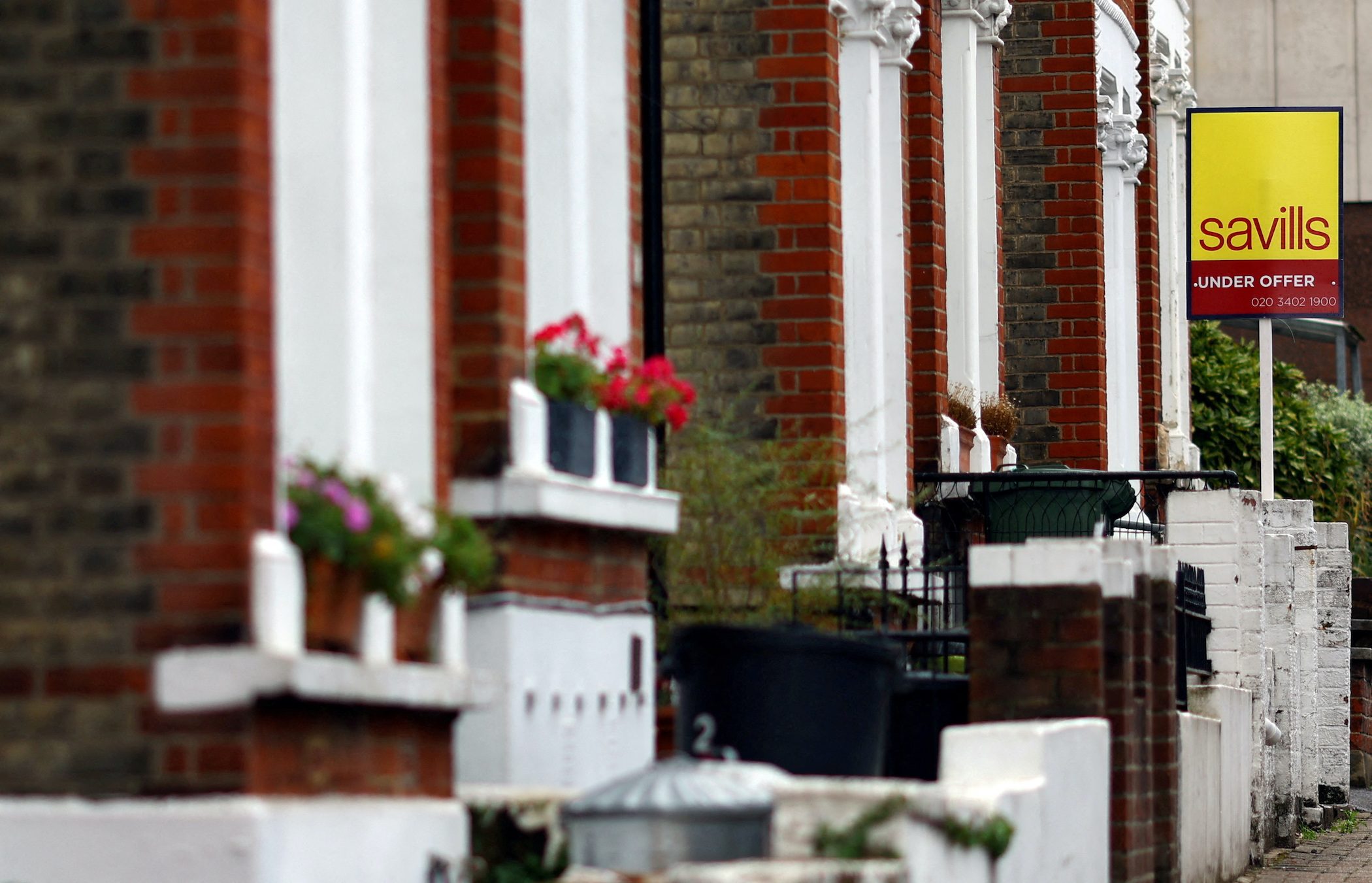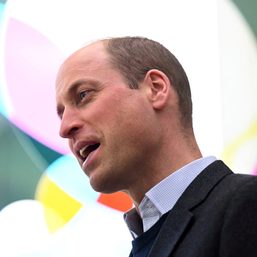SUMMARY
This is AI generated summarization, which may have errors. For context, always refer to the full article.

LONDON, United Kingdom – It was bad news every time Redmond Shannon’s mortgage broker called: rates on the five-year fix he needed to buy an apartment in east London were jumping daily.
By mid-October, his monthly payments had risen more than 11% on the same deal he was eyeing at the start of the month.
The first-time home buyer was one of thousands of victims of Britain’s tax-cutting mini-budget last month, designed to fuel growth and, as then-finance minister Kwasi Kwarteng said at the time, “help families aspiring to own their own home.”
That aspiration – the foundation of financial security for generations of Britons – soured after a rout of the country’s government bonds pushed up the cost of borrowing for lenders, causing turmoil in the mortgage market.
Kwarteng lasted only three weeks in the job after his budget, and most of his tax cuts have now been dumped. Liz Truss resigned as prime minister less than a week after him.
Yields on UK government bonds, or gilts, drive swap rates and hence dictate how much lenders pay in the money markets.
Fixed rates have jumped. Average two-year and five-year fixed rates hit 6.65% and 6.51% on Thursday, October 20, according to Moneyfacts, the highest since 2008. One year ago, the average two-year rate was 2.25%.
Shannon, a 45-year-old Irish-Canadian broadcast journalist, said interest rates were going up globally, but that Britain’s mini-budget had inflamed the situation.
“Politics is influencing my mortgage,” he said. “It feels like you’re at the mercy of what happens in Downing Street.”
He has been offered a 5.49% rate on a five-year deal on the apartment he has agreed to buy, up from 4.08% on October 3.
Falling prices
A drop in gilt yields following Rishi Sunak’s victory in the Conservative Party leadership race could potentially feed through to lower mortgage rates.
But the number of loans available for first-time buyers remains at less than half those on offer before the mini-budget, according to Moneyfacts.
Josh Hardy, a 32-year-old landscape gardener and economics student, was in the process of reserving a new-build house on the outskirts of Exeter, a prosperous cathedral city in southwest England, when interest rates edged higher.
“Anywhere between three [and] maybe four and a half percent, we could just about stomach,” he said. “But the mini-budget sent the gilt market into chaos. Banks just began pulling mortgage products left, right, and center.”
His broker sourced a two-year fixed rate of 6.39%.
“Essentially that has taken our prospective mortgage from 850 pounds a month as we were looking at it, to just short of 1,250,” he said. “That was the final nail in the coffin.”
He said while he and his wife could afford the mortgage – and could up to a level of about 8% – he was concerned that the overall housing market would fall.
“The idea of taking on a six, a six and a half percent mortgage and then sitting for however long in negative equity is just a scary prospect for a first-time buyer,” he said.
He pulled out.
The dream of home ownership turned into an obsession for millions of Britons in the 1980s, with Conservative Prime Minister Margaret Thatcher’s vision of creating a “property-owning democracy.”
But with prices rising for years, millions have been locked out. Average house prices in Britain have nearly doubled in the last 17 years, rising from 150,786 pounds ($170,000) to 295,903 pounds, according to the Office for National Statistics (ONS).
With house prices outstripping wage growth, an average full-time worker in England had to spend more than nine times their annual salary on a home, more than double the level of just over four times in 2000, ONS data shows.
Prices in southwest England, where Hardy lives, rose 17% in the year to August, the fastest growth in the country, forcing many first-time buyers to save for years.
“And then just at the time that we had got the deposit and were ready to go, the mini-budget came and dashed it all,” he said.
New fixes
As well as first-time buyers, brokers are dealing with thousands of people whose fixed rate mortgages are due to expire in the coming months.
Interest rates in Britain – and most other major economies – have been at historic lows since the 2008 financial crisis, and millions of people have fixed rates at around 2% or lower.
“The mortgage market is functioning, there’s access. But the reality is the prices are going up,” one senior source at a top UK lender said, adding that four-fifths of around 70,000 customers whose mortgages were set to renew between now and end-2022 had already secured a new deal.
“I’m not seeing defaults or stress in the market, but there’s lots of anxiety,” the banker said, adding that for many the higher mortgage rates would hit their disposable income at the same time that energy and food bills are rising.
Ray Boulger, senior mortgage technical manager at broker John Charcol, said he expected house prices to fall by at least 10% and probably 15% over the next year – in line with other forecasts.
That gives first-time buyers the difficult choice of whether to buy in a declining market, or continue renting in a market where rental inflation is accelerating.
“It depends on how much value you put on having the security of tenure you get from the property,” he said.
Redmond, who has had an offer accepted in east London, said it felt as though every turn of political event only made the fixed interest rate higher.
“I’m worried that I might be at the peak of the property market, the current peak that I might be both paying a high price with high interest rates,” he said.
But he said he was in a position to buy now.
“Even if the property price drops in the short term, as long as I can afford it, it is a home, which is the important thing,” he said. – Rappler.com
$1 = 0.8848 pounds
Add a comment
How does this make you feel?




![[ANALYSIS] Rule of 120: A practical method of asset allocation and minimizing investment risk exposure](https://www.rappler.com/tachyon/2024/02/tl-rule-120-02222024.jpg?resize=257%2C257&crop=274px%2C0px%2C720px%2C720px)





There are no comments yet. Add your comment to start the conversation.